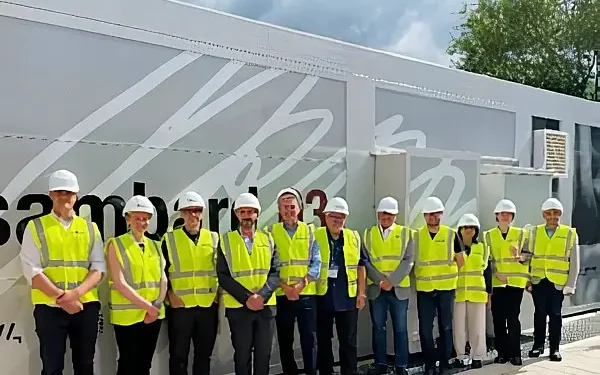Today the UK and Canada have signed two landmark agreements aimed at strengthening their collaboration in AI compute, innovation, and various key technology areas.
Signed by UK Technology Secretary Michelle Donelan and Canadian Minister for Innovation, Science, and Industry François-Philippe Champagne in Ottawa, these agreements mark a new era in the bilateral relationship between the two nations.
The AI Compute Agreement
Fostering AI Research and Development
At the heart of the new agreements is a Memorandum of Understanding (MOU) on AI compute, a crucial component in the development and use of artificial intelligence.
This MOU is designed to ensure secure and affordable access to computing capacity, which is essential for training and utilizing AI systems in both countries.
Collaborative Efforts
The UK and Canada are committed to exploring opportunities for collaboration on compute capability, not only between themselves but also with other like-minded countries. This includes focusing on areas of shared strategic importance such as biomedicine and climate research.
The collaboration aims to support researchers and industry by providing the necessary computing power to drive innovation.
Broader Science and Innovation Partnership
Enhancing Collaboration Across Joint Technologies
Alongside the AI compute agreement, the UK and Canada have also signed a refreshed partnership to strengthen their collaboration across a range of key technologies. These include quantum, AI, semiconductors, engineering biology, and clean energy technology.
The goal is to foster research and bring innovative solutions to market, helping to address global challenges such as climate change and healthcare advancements.
Scientific Diplomacy and Global Impact
An additional focus on scientific diplomacy will see both countries exchanging expertise on international standards, governance, and regulation of new technologies.
This will help inform discussions in international forums like the G7 and G20. The partnership also aims to share research excellence with the Global South to build international capacity and address worldwide challenges.
Quotes
Michelle Donelan, UK Secretary of State for Science, Innovation and Technology said,
“The UK’s unique partnership with Canada across science, innovation, and technology is built on a shared desire to be an active force for good on the global stage. Today’s agreements deepen that relationship even further, as we commit to working side-by-side to address the defining technological challenges of our generation.”
François-Philippe Champagne, Canadian Minister for Innovation, Science, and Industry said,
“Canada and the UK have a deep relationship that encourages collaboration to help both countries thrive. Today’s memorandums of understanding on scientific research, innovation and AI compute will drive positive impacts across all fields of research and innovation, help businesses accelerate commercialization and link our leading researchers together.”
Areas of Collaboration
- Quantum Technology
- Joint research projects to develop quantum technologies.
- Artificial Intelligence
- Collaboration on AI compute and AI research and development.
- Semiconductors
- Fostering innovation in semiconductor technology.
- Engineering Biology
- Advancing research in engineering biology.
- Clean Energy Technology
- Developing innovative solutions for clean energy.
Impact and Statistics
Area of Collaboration |
Description |
Impact |
|---|---|---|
| Quantum Technology | Industry-led partnership for quantum tech development | $150M in joint research projects |
| AI Compute | Secure, affordable access to computing capacity | Enables AI training and usage |
| Biomedicine | Collaborations in biomedicine research | Addresses global health challenges |
| Scientific Diplomacy | Expertise exchange on international standards and governance | Informs G7 and G20 discussions |
Mobile Optimization and Readability
To ensure this article is optimized for mobile users, here are some key considerations:
- Brief Paragraphs: Each paragraph is kept concise to facilitate easy reading on mobile devices.
- Clear Headings: The use of H1, H2, and H3 headings helps in navigating the content smoothly.
- Transition Words: Transition words are used to maintain a smooth flow between sentences.
- Active Voice: The article is written in active voice to enhance readability.
In a Nutshell
The dual agreements between the UK and Canada mark a significant step forward in their collaboration on AI compute, innovation, and various key technologies. These agreements not only strengthen the bilateral relationship but also position both countries as global leaders in addressing technological challenges.
As the UK and Canada continue to work together, their combined efforts are expected to drive positive impacts across all fields of research and innovation, ultimately benefiting businesses, researchers, and the global community.
Sources: THX News & British High Commission Ottawa.









